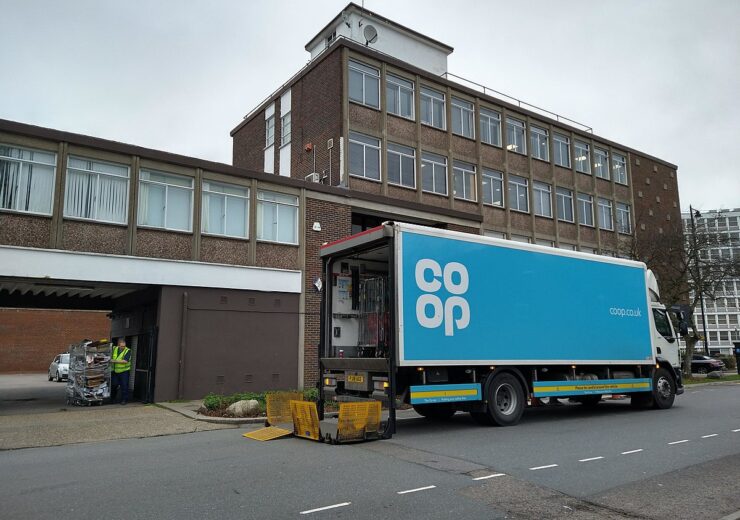Co-op said that replacing the coloured caps with clear caps on all of its products will remove more than 150 tonnes of coloured plastic from HDPE streams per year

Co-op will replace the coloured caps with clear caps on all of its milk bottles. (Credit: Philafrenzy/Wikimedia Commons)
UK-based co-operative group Co-op has announced its commitment to remove all coloured milk bottle caps from its shelves to increase the recyclability of the lids.
The convenience retailer will replace the coloured caps with clear caps on all of its skimmed, semi-skimmed and whole milk bottles across all its stores in the UK.
According to the firm, clear bottle tops minimise colour contamination in the high-density polyethylene (HDPE) stream and thus allowing materials to be recycled more easily into food-grade packaging.
The latest announcement comes after taking a trial of the caps on semi-skimmed milk in more than 400 Co-op stores in August this year.
The retailer said that the green caps will be replaced by clear caps in all of its stores by the end of next month.
Additionally, Co-op will also remove red (skimmed milk caps) and blue (whole milk caps) in staring of 2023.
Upon completion, these projects will remove more than 150 tonnes of coloured plastic from HDPE streams per year, the retailer claimed.
Co-op milk buyer Adam Williams said: “There are changes in store for how shoppers see milk bottle tops, with the new caps able (to be) more easily recycled and retained in the food sector, unlike their coloured counterparts.
“There is limited availability of food-grade recycled plastic, and that is a challenge. It is important that packaging is viewed as a valuable resource.
“We continue to work to explore new ways to make it easier to recycle and re-use these materials; it is a small change to an everyday issue that will collectively add up to make a big difference – a ‘clear’ solution that can reduce the dependency on virgin plastic in the supply chain.”
A few days back, Co-op announced a new trial to count the number of its own-brand plastic bottles that are being recycled to achieve a circular economy.
